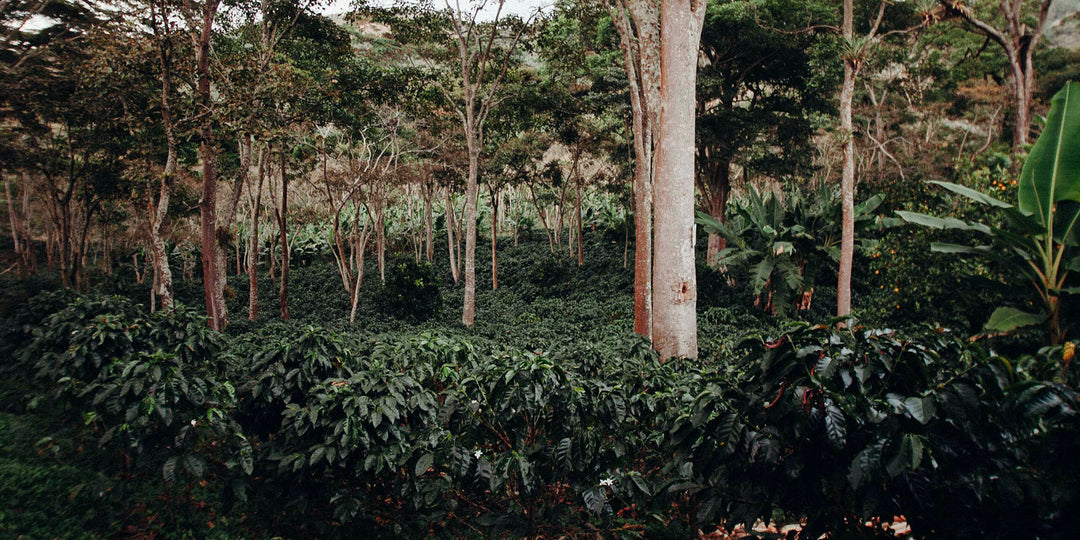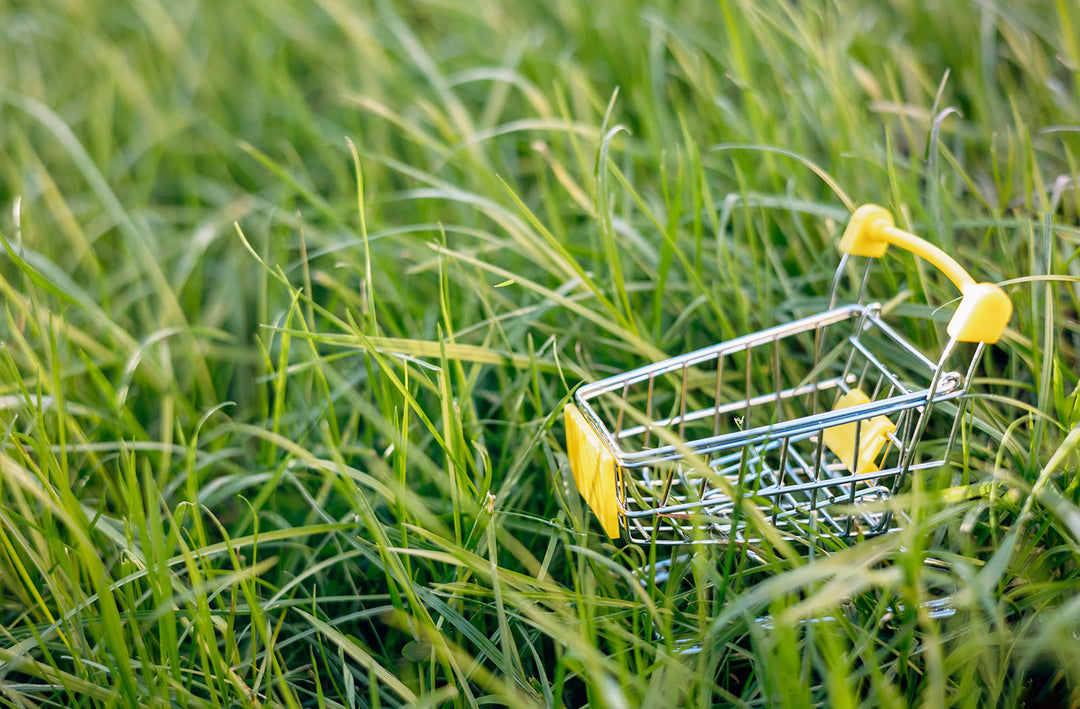There are some people who love coffee, but they've had to give it up because it bothers their stomach. Indigestion, acid reflux and a general feeling of malaise around the gut are common complaints. As a result, coffee lovers either stop drinking coffee, drink less or just suffer through.
What is going on with coffee and the stomach? Is it the acidity? Is it the caffeine? Or is it something else? At Purity, we take health complaints seriously, and have dug into the research to get some answers to what might be contributing to stomach issues.
Is it the acidity in coffee? What about the caffeine?
Let’s look into the most common complaint: “The amount of acids in coffee hurt my stomach.” Average stomach acid levels are around 2.5 pH, and average roasted coffee levels are around 5 to 5.5 pH (less acidic than gastric acid). Coffee has approximately the same acidity as watermelon, and a lower acid content on average than many common foods, like tomato (about 4.3) or orange juice (around 3.7). This means the acidity of coffee is unlikely to increase your stomach’s acidity pH level.
Heartburn is the most frequently reported gastric symptom after the consumption of coffee. If it’s not the acidity, then what could be going on?
Caffeine is often cited as the culprit for bad stomach feelings. Unfortunately, a survey of the literature indicates it may not actually be the problem, because studies show both regular coffee and decaffeinated coffee cause the same issues <1>.
If not acidity or caffeine, then something else must be causing our stomach discomfort. One study found that different coffees induced various levels of reflux in a “coffee-sensitive” study <2>. In other words, certain coffee consumers may be more sensitive than others to stomach-related effects, when they drank different types of coffees. An older study showed that some people have an anatomical propensity for coffee and heartburn, finding that “coffee may cause or aggravate heartburn by decreasing lower esophageal sphincter pressure” <5>. We haven’t found more recent studies that confirm this, though, and they did not include decaffeinated coffee in the study.
In a meta-analysis that analyzed association of coffee consumption with gastric ulcers or duodenal ulcers, researchers determined there was no significant relationship between coffee consumption and the four major acid-related upper gastrointestinal disorders <3>. This conclusion is frustrating, though, for those who have stomach issues when they drink coffee. The discomfort is not imaginary, but we found no large, well-designed study that shows that the elimination of coffee or caffeine consistently improves reflux symptoms or outcomes <4>.
Research is also confounded by significant variances within different coffees (types, roasts, brew methods, etc.). Could quality be a consideration? For those who feel they can directly link their indigestion to coffee, what more can you tell us about the coffee you are drinking? Do you add anything to your coffee or routinely eat something with coffee? Are you purchasing clean, high quality, organic coffee from a trusted company?
If it's not the acidity or caffeine in coffee, what else could be causing issues?
If it isn’t the coffee itself, could there be contaminants, like toxins or pesticides? What about old coffee—a lot of supermarket coffee has been sitting in warehouses and on shelves for weeks or months before you get it.
Some toxins are caused by fungi, such as Aspergillus or Fusarium species, which produce mycotoxins. Both of these known mold-producing fungi are commonly identified in low-quality, poorly processed coffee <24>. Ingesting mold or moldy foods is known to cause a variety of adverse health effects, including stomach pain, acid reflux, and indigestion. Many fungi produce metabolites called mycotoxins, which are known to be common in poor quality, poorly-processed coffees. Ochratoxin A, a by-product of mold, is a known fungal toxin in coffee <25> which has various adverse effects on human health.
Pesticide residues, if they remain on coffee, could also contribute to stomach troubles. There are various stomach and digestive-related symptoms which are related to acute pesticide poisoning. However, these symptoms are usually expected in high-exposure (poisoning) situations. This doesn’t mean that pesticide residues cannot irritate your stomach, but this is a challenging topic to study, and therefore more research is needed in this area.
Coffee naturally contains oils, and fresh, well-roasted coffees provide enjoyable aromatic experiences, as well as nutrition. Oils exposed to oxygen become rancid, and when oils break down, other products form with toxic or unknown effects on our body’s functions <26>. We found numerous studies going back over 100 years on the negative effects of rancid oils in foods on the stomach and body.
We encourage everyone to drink a specialty-grade (i.e. high standards), organic, confirmed toxin-free, medium-roasted coffee, to make sure you are setting your stomach up for success. If you find that Purity Coffee does not cause problems, please let us know what you have been drinking in the past, so we can provide researchers direction that could help get to the bottom of the issue.
Here is a summary of what we discovered in our research:
- Coffee studies on stomach and gastrointestinal issues vary widely, and this is still an area of active research.
- Toxins have been known to cause stomach issues and may be in lower quality and old coffee.
- Some chemical compounds naturally found in coffee may stimulate gastric acid production, but the research results on this topic are mixed, depending on the type of coffee and a person’s genetics.
- Coffee may stimulate digestion. Scientists have linked coffee drinking to enhanced colonic motor activity and gallbladder contraction 20-21.
- J. Boekema, M. S. G. P. v. B. H. A. J. P. M. S. P., Coffee and Gastrointestinal Function: Facts and Fiction: A Review. Scandinavian Journal of Gastroenterology 1999, 34 (230), 35-39.
- Brazer, S. R.; Onken, J. E.; Dalton, C. B.; Smith, J. W.; Schiffman, S. S., Effect of different coffees on esophageal acid contact time and symptoms in coffee-sensitive subjects. Physiology & Behavior 1995, 57 (3), 563-567.
- Shimamoto, T.; Yamamichi, N.; Kodashima, S.; Takahashi, Y.; Fujishiro, M.; Oka, M.; Mitsushima, T.; Koike, K., No Association of Coffee Consumption with Gastric Ulcer, Duodenal Ulcer, Reflux Esophagitis, and Non-Erosive Reflux Disease: A Cross-Sectional Study of 8,013 Healthy Subjects in Japan. PLoS ONE 2013, 8 (6), 1-9.
- Wendl, B.; Pfeiffer, A.; Pehl, C.; Schmidt, T.; Kaess, H., Effect of decaffeination of coffee or tea on gastro-oesophageal reflux. Alimentary Pharmacology & Therapeutics 1994, 8 (3), 283-287.
- Thomas FB, Steinbaugh JT, Fromkes JJ, Mekhjian HS, Caldwell JH. Inhibitory effect of coffee on lower esophageal sphincter pressure. Gastroenterology. 1980 Dec;79(6):1262-6.
- Pehl, C., Pfeifer, A., Wendl, B. & Kaess, H. Te efect of decafeination of cofee on gastro-oesophageal refux in patients with refux disease. Aliment. Pharmacol. Ter. 11, 483–486 (1997).
- Ehrlich, A.; Lücker, P. W.; Schaefer, A., Effect of processed and non-processed coffee samples on gastric potential difference. Study with healthy male Helicobacter pylori-positive and Helicobacter pylori-negative volunteers. Arzneimittel-Forschung 1999, 49 (7), 626-630.
- Lang, R.; Bardelmeier, I.; Weiss, C.; Rubach, M.; Somoza, V.; Hofmann, T., Quantitation of βN-Alkanoyl-5-hydroxytryptamides in Coffee by Means of LC-MS/MS-SIDA and Assessment of Their Gastric Acid Secretion Potential Using the HGT-1 Cell Assay. Journal of Agricultural and Food Chemistry 2010, 58 (3), 1593-1602.
- Weiss, C.; Rubach, M.; Lang, R.; Seebach, E.; Blumberg, S.; Frank, O.; Hofmann, T.; Somoza, V., Measurement of the Intracellular pH in Human Stomach Cells: A Novel Approach To Evaluate the Gastric Acid Secretory Potential of Coffee Beverages. Journal of Agricultural and Food Chemistry 2010, 58 (3), 1976-1985.
- Liszt, K. I.; Walker, J.; Somoza, V., Identification of Organic Acids in Wine That Stimulate Mechanisms of Gastric Acid Secretion. Journal of Agricultural and Food Chemistry 2012, 60 (28), 7022-7030.
- Liszt, K. I.; Ley, J. P.; Lieder, B.; Behrens, M.; Stöger, V.; Reiner, A.; Hochkogler, C. M.; Köck, E.; Marchiori, A.; Hans, J.; Widder, S.; Krammer, G.; Sanger, G. J.; Somoza, M. M.; Meyerhof, W.; Somoza, V., Caffeine induces gastric acid secretion via bitter taste signaling in gastric parietal cells. Proceedings of the National Academy of Sciences 2017, 114 (30), E6260.
- Rubach, M.; Lang, R.; Skupin, C.; Hofmann, T.; Somoza, V., Activity-Guided Fractionation to Characterize a Coffee Beverage that Effectively Down-Regulates Mechanisms of Gastric Acid Secretion as Compared to Regular Coffee. Journal of Agricultural and Food Chemistry 2010, 58 (7), 4153-4161.
- Rubach, M.; Lang, R.; Seebach, E.; Somoza, M. M.; Hofmann, T.; Somoza, V., Multi-parametric approach to identify coffee components that regulate mechanisms of gastric acid secretion. Molecular Nutrition & Food Research 2012, 56 (2), 325-335.
- Rubach, M.; Lang, R.; Bytof, G.; Stiebitz, H.; Lantz, I.; Hofmann, T.; Somoza, V., A dark brown roast coffee blend is less effective at stimulating gastric acid secretion in healthy volunteers compared to a medium roast market blend. Molecular Nutrition & Food Research 2014, 58 (6), 1370-1373.
- Boekema, P. J.; Samsom, M.; van Berge Henegouwen, G. P.; Smout, A. J., Coffee and gastrointestinal function: facts and fiction. A review. Scandinavian journal of gastroenterology. Supplement 1999, 230, 35-9.
- Feldman, M.; Barnett, C., Relationships between the acidity and osmolality of popular beverages and reported postprandial heartburn. Gastroenterology 1995, 108 (1), 125-131.
- Kaltenbach, T.; Crockett, S.; Gerson, L. B., Are lifestyle measures effective in patients with gastroesophageal reflux disease? An evidence-based approach. Archives Of Internal Medicine 2006, 166 (9), 965-971.
- Nilsson, M.; Johnsen, R.; Ye, W.; Hveem, K.; Lagergren, J., Lifestyle related risk factors in the aetiology of gastro-oesophageal reflux. Gut 2004, 53 (12), 1730.
- Elta, G. H.; Behler, E. M.; Colturi, T. J., Comparison of coffee intake and coffee-induced symptoms in patients with duodenal ulcer, nonulcer dyspepsia, and normal controls. The American Journal Of Gastroenterology 1990, 85 (10), 1339-1342.
- Boekema, P. J.; Samsom, M.; Roelofs, J. M. M.; Smout, A. J. P. M., Effect of Coffee on Motor and Sensory Function of Proximal Stomach. Digestive Diseases and Sciences 2001, 46 (5), 945-951.
- Buijs, M. M.; Kobaek-Larsen, M.; Kaalby, L.; Baatrup, G., Can coffee or chewing gum decrease transit times in Colon capsule endoscopy? A randomized controlled trial. BMC Gastroenterology 2018, 18 (1), 95-95.
- Brown, S. R.; Cann, P. A.; Read, N. W., Effect of coffee on distal colon function. Gut 1990, 31 (4), 450-3.
- Douglas, B. R.; Jansen, J. B.; Tham, R. T.; Lamers, C. B., Coffee stimulation of cholecystokinin release and gallbladder contraction in humans. The American Journal Of Clinical Nutrition 1990, 52 (3), 553-556.
- Geremew, T.; Abate, D.; Landschoot, S.; Haesaert, G.; Audenaert, K., Occurrence of toxigenic fungi and ochratoxin A in Ethiopian coffee for local consumption. Food Control 2016, 69, 65-73.
- Reichert, B.; de Kok, A.; Pizzutti, I. R.; Scholten, J.; Cardoso, C. D.; Spanjer, M., Simultaneous determination of 117 pesticides and 30 mycotoxins in raw coffee, without clean-up, by LC-ESI-MS/MS analysis. Analytica Chimica Acta 2018.
- Dhopeshwarkar, G.; Naturally occurring food toxicants: Toxic lipids; Laboratory of Nuclear Medicine and Radiation Biology, and Division of Environmental and Nutritional Sciences, School of Public Health, University of California, Los Angeles, California 90024, U.S.A.; 1980.
- Erasmus, U.; Fats that heal Fats that Kill; Alive Books, TN; 1986.








Leave a comment